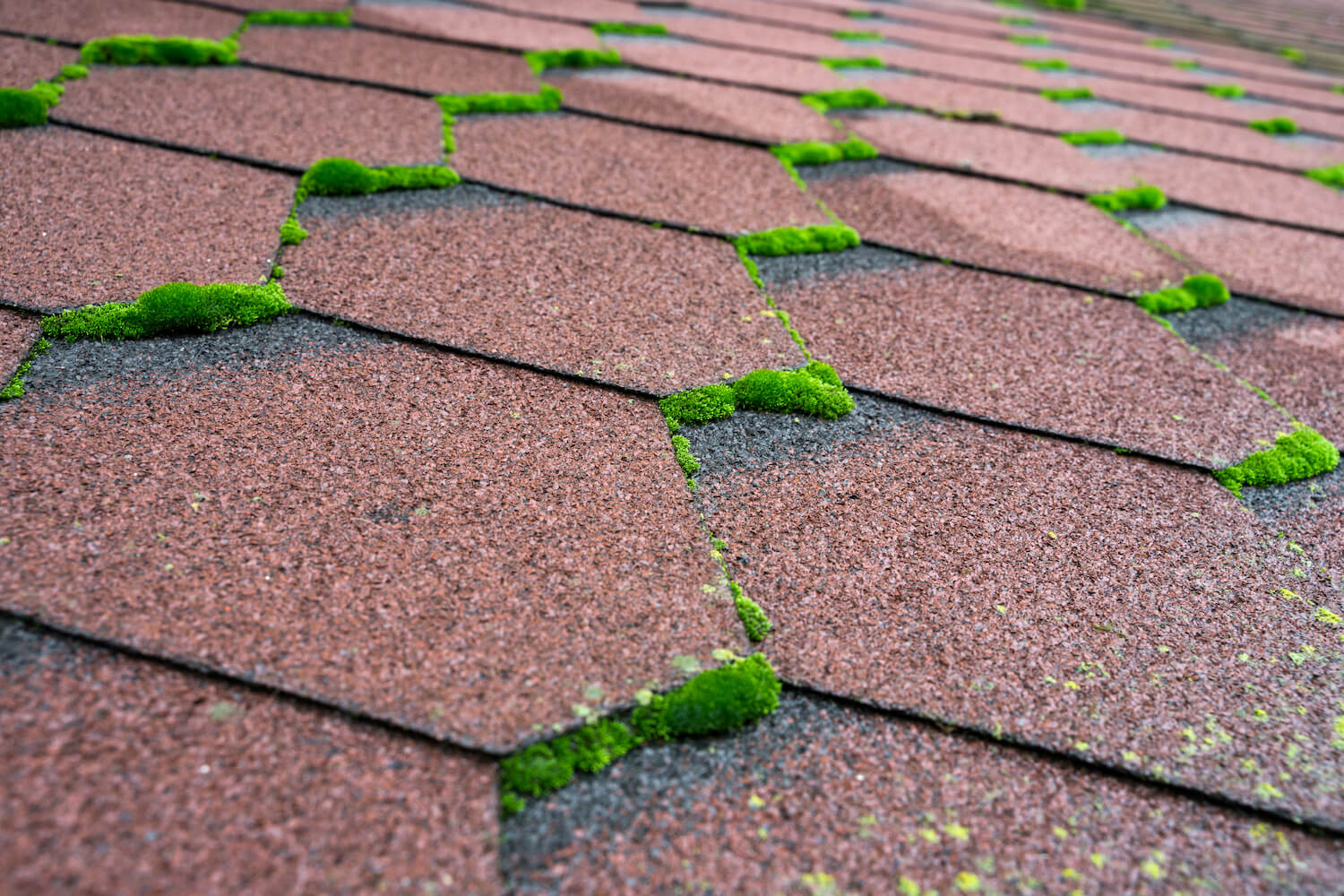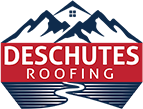Your roof stands as a steadfast guardian against the elements, protecting your home from rain, snow, wind, and UV rays. However, there are silent and persistent enemies that can undermine its integrity over time: moss and mold. These unwanted guests can cause more damage than you might realize.
In this extensive guide, we will delve into the world of moss, and mold, and the best strategies to combat their presence on your roof.

Understanding the Threat: Moss and Mold
Before we dive into how to defeat these foes, let’s first understand their characteristics and the problems they can cause.
Moss: The Green Invader
Moss is a non-flowering plant that thrives in damp and shaded environments. It can find a welcoming home on your roof if the conditions are right. Here’s why moss can be a problem for your roof:
- Moisture Retention: Moss has an incredible ability to retain moisture. Its growth can trap rainwater, which can then seep under roofing materials, leading to leaks and water damage.
- Structural Damage: As moss grows, it extends its root-like structures into the spaces between shingles or roofing materials. Over time, this can lead to structural damage and shingle displacement.
- Reduced Lifespan: Moss can significantly shorten the lifespan of your roof by accelerating shingle deterioration. This may require premature roof replacement.
Mold: The Stealthy Invader
Mold, on the other hand, is a type of fungi that can flourish in damp, dark, and humid conditions. Here’s why mold can be a problem for your roof:
- Health Hazards: Mold can pose serious health risks. When spores become airborne, they can be inhaled and cause respiratory problems and allergies.
- Surface Damage: Mold can eat away at the surface of your roof materials, gradually causing them to deteriorate.
- Reduced Energy Efficiency: Mold can affect the reflective properties of your roofing materials, leading to reduced energy efficiency and higher cooling costs.
The Battle Plan: How to Defeat Moss and Mold
Now that we understand the potential threats of moss and mold, let’s explore how to effectively combat their presence on your roof.
Regular Inspection and Cleaning
The first line of defense against moss and mold is a routine inspection and cleaning regimen. Here’s what you should do:
- Visual Inspection: Schedule regular inspections to check for any signs of moss or mold growth. Look for discolored areas, green patches, or black streaks.
- Cleaning: If you detect moss or mold, clean your roof immediately. Use a solution of water and mild detergent or specialized roof cleaning products. Avoid harsh chemicals or high-pressure washing, as they can damage roofing materials.
- Prevention: Implement a preventive cleaning schedule to halt the development of moss and mold. This is especially important in areas with a history of infestations.
Trim Overhanging Trees
Overhanging branches provide shade and keep your roof in perpetual dampness, creating ideal conditions for moss and mold. Here’s what you should do:
- Trim Regularly: Keep branches and leaves away from your roof. Regularly trim any overhanging branches to ensure they don’t shade your roof or drop debris on it.
- Create Space: Maintain a gap between your roof and any trees or vegetation. This allows better airflow and reduces the likelihood of mold and moss taking hold.
Ensure Proper Roof Ventilation
Proper ventilation is essential to prevent moisture buildup in your attic and on your roof. Here’s why it’s vital:
- Ventilation Benefits: Adequate ventilation ensures that moisture and heat escape from your attic. This prevents mold growth and wood rot, and the conditions in moss and mold thrive.
- Insulation: Ensure your attic is adequately insulated to maintain even temperatures. This reduces temperature fluctuations on your roof and helps prevent condensation, which can promote mold growth.
High-Quality Roofing Materials
One way to minimize the likelihood of moss and mold infestations is by choosing roofing materials that are less susceptible to these problems. Here are some materials to consider:
- Metal Roofing: Metal roofing is less prone to moss and mold growth due to its smooth surface and durability. It also sheds water quickly.
- Asphalt Shingles with Zinc Strips: Some asphalt shingles have zinc or copper granules embedded in them. These materials naturally resist moss and mold.
- Algae-Resistant Shingles: Opt for roofing materials labeled as “algae-resistant.” These shingles typically contain copper granules that inhibit moss and algae growth.
Apply Moss and Mold Inhibitors
There are commercially available products designed to inhibit moss and mold growth on your roof. Here’s how you can use them:
- Zinc Strips: Install zinc or copper strips at the ridge of your roof. When it rains, small amounts of these metals wash down the roof, inhibiting moss and mold.
- Algae-Resistant Shingles: Consider installing shingles with built-in algae resistance. These shingles contain copper granules that discourage moss and mold.
- Moss and Mold Inhibitors: There are specialized moss and mold inhibitors available for roofs. These can be sprayed or applied as a preventive measure.
Roof Coating
Roof coatings can act as a protective barrier against moss and mold. Here’s what you should know:
- Roof Coating Types: Elastomeric roof coatings are commonly used to protect against mold and mildew. They create a waterproof and UV-resistant barrier.
- Professional Application: Roof coatings should be professionally applied to ensure even coverage and effectiveness.
Repair Leaks Promptly
Roof leaks can lead to moisture accumulation and create ideal conditions for mold and moss. Be vigilant and repair leaks as soon as you notice them. Here’s what to do:
- Inspection: Regularly check your roof for signs of damage or wear, especially after severe weather events.
- Timely Repairs: If you notice leaks or damaged areas, address them promptly to prevent moisture from infiltrating your roofing materials.
Expert Home Roofing Assistance
In some cases, the presence of moss or mold may require professional intervention. Mold infestations inside your home, for example, demand immediate attention to ensure the health and safety of your family. Similarly, if you’re dealing with an extensive moss problem on your roof, consulting experts can be beneficial.
- Mold Remediation: Mold remediation professionals can assess the extent of mold infestations and safely remove it from your home.
- Roof Cleaning Services: Roof cleaning services can effectively and safely clean your roof, removing moss and mold infestations.
- Roof Inspection Services: Consider scheduling professional roof inspections regularly to catch moss and mold problems early. These experts can recommend the best course of action and identify any underlying issues that may be contributing to the growth.
- HVAC Specialists: If you suspect mold is spreading through your HVAC system, it’s essential to consult with heating, ventilation, and air conditioning (HVAC) specialists who can inspect and rectify the issue.
The Power of Prevention
Preventing moss and mold is often more effective and less costly than dealing with an infestation. Here are some preventive measures to keep in mind:
- Regular Maintenance: Maintain a schedule of regular roof inspections and maintenance. Address any issues promptly to prevent moisture accumulation.
- Gutter Cleaning: Keep your gutters clean and free of debris to ensure proper water drainage. Clogged gutters can contribute to moisture problems on your roof.
- Weatherproofing: Protect your roof from the elements by ensuring proper flashing, seals, and weatherproofing around roof penetrations like chimneys, vents, and skylights.
- Moss Prevention: Apply moss inhibitors or consider installing zinc or copper strips to deter moss growth.
- Adequate Ventilation: Ensure your attic has proper ventilation and insulation. This will help maintain consistent temperatures and reduce condensation.
- Tree Maintenance: Regularly trim overhanging branches and maintain a gap between your roof and vegetation to prevent moss and mold growth.
- Algae-Resistant Shingles: Choose roofing materials labeled as algae-resistant, containing copper granules, to prevent algae and moss growth.
Health and Safety Considerations
When dealing with mold infestations, it’s essential to prioritize health and safety:
- Protective Gear: If you’re attempting to clean mold yourself, wear protective gear, including gloves, a mask, and safety goggles.
- Ventilation: Ensure proper ventilation when working in enclosed spaces to avoid inhaling mold spores.
- Professional Assistance: For extensive mold problems or mold inside your home, consult with professionals who are trained in mold remediation.
In Conclusion
Moss and mold are silent enemies that can compromise the integrity of your roof and affect the safety and health of your home. Vigilance and preventive measures are key in keeping these invaders at bay. Regular inspections, proper ventilation, quality roofing materials, and effective cleaning techniques are the arsenal you need to defeat moss and mold and protect your home’s most vital shield. By following the strategies outlined in this guide, you can ensure your roof remains free of these unwanted guests and maintains its durability and longevity for years to come.










